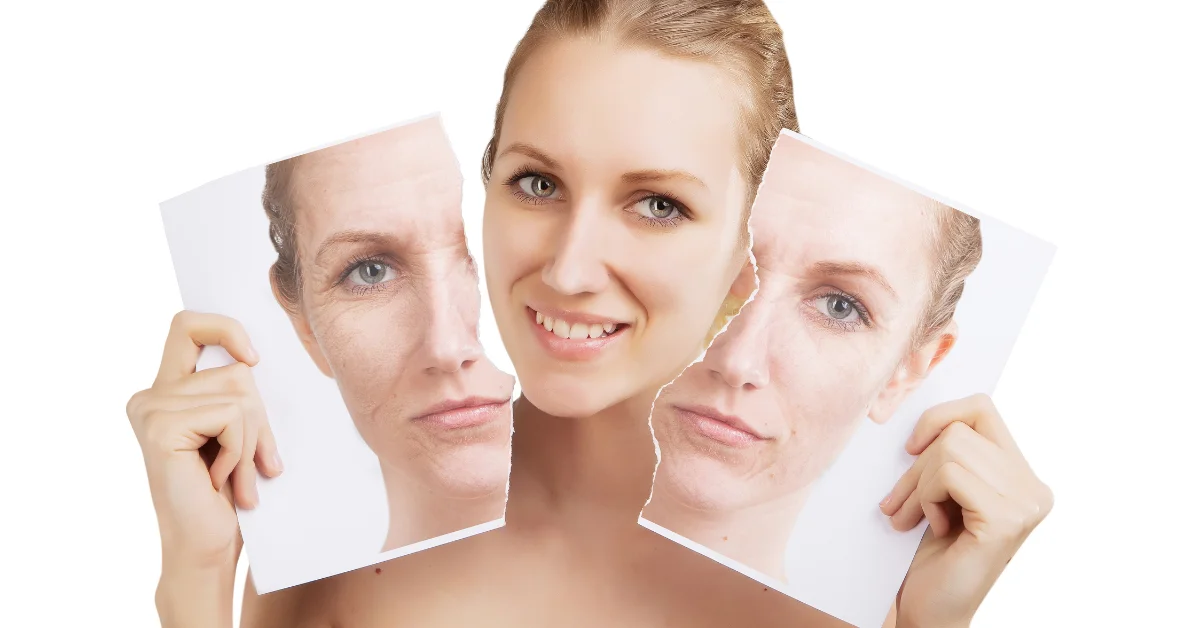People with black skin can be prone to dark spots, which may appear on the face or other parts of the body. These areas of hyperpigmentation occur as the result of sun exposure or, more commonly, develop on a previously inflamed area of the skin.
In this blog,we have summarized some home remedies as well as medical treatments to get rid of dark spots on black skin.
Causes Of Dark Spots:
This Condition may occur on black skin when the skin overproduces melanin. Melanin is the substance that gives skin its color.
Factors that can trigger excess melanin production include sun exposure as well as hormonal changes, such as those that occur during pregnancy.
This can also occur as a result of inflammation or trauma to the skin, such as from:
Not just that, Even everyday skin care practices can contribute to the development of dark spots. Using harsh scrubs, waxing, and shaving can all cause minor skin trauma that leads to skin changes.
How To Get Rid Of Dark Spots
The treatment that a person requires will depend on their skin type and the severity of the discoloration. Dark spots are not usually harmful, so it may not be necessary to seek treatment unless a person finds them bothersome.
The Treatment Include :
The “Wait And See” Approach
In some cases, no treatment may be the best option, as the spots could go away over time.
For example, this may be the case for some types of hyperpigmentation that occur during pregnancy or those that appear after an acne pimple goes away.
The use of sun protection can help prevent the spots from getting darker.
How To Remove The Cause
If the discoloration is the result of a skin care product or certain medications, then stopping the use of these products may prevent the formation of new dark spots.
According to the American Academy Of Dermatology (AAD), once a person removes the cause of the spots, any existing ones will typically fade within 6 to 12 months. However, daily sunscreen use is important to help the area fade and prevent the sun from darkening it.
Darker spots may take years to fade, however. In these situations, medical treatments or skin lightening products may help.
Treatment of underlying medical conditions
Proper management of existing skin conditions, such as acne or psoriasis, is likely to help stop new spots from appearing.
Any dark spots that are already on the skin due to these conditions may then fade away over time.
Sunscreen
Adequate sun protection is advisable for everyone, regardless of skin type or color. Still some research shows that sunscreen use is especially low among non-Hispanic black people.
The sun’s ultraviolet (UV) rays are responsible for most dark skin spots. The UV rays trigger excess melanin production, causing new areas of hyperpigmentation and darkening existing areas.
We recommend everyone to use sunscreen that:
- has a sun protection factor (SPF) of at least 30
- protects against UVA and UVB rays (manufacturers may label it as broad spectrum)
- is water resistant
People should apply it to all areas of exposed skin — not just the face — and wear it year-round.
Natural Remedies

Some people claim that natural remedies can effectively reduce dark spots on black skin. The most popular remedies include:
- Aloe vera gel
- Green tea
- Lemon juice
- Soy milk
- Turmeric
However, there is no scientific evidence that these natural treatments lighten areas of hyperpigmentation. Some of them may even cause other skin problems. For example, lemon juice can dry out and irritate the skin.
Skin Lightening Products
Several products are available over the counter to treat an uneven skin tone. For the best results, a person should choose a skin lightener that contains one of the following :
Vitamin C
Vitamin C is a potent antioxidant. When it comes to skin care, research suggest that it can protect against sun damage, increase collagen levels, and reduce the formation of melanin to stop hyperpigmentation.
However, it is unclear how effective it can be due to the poor ability of current preparations to penetrate the skin.
Vitamin C serums are available in pharmacies and online.
Kojic acid
Kojic acid is another common skin lightener.
However, it may be less effective than other remedies for dark spots. A study on a type of hyperpigmentation called melasma found that 4% hydroquinone cream was a better and faster treatment for hyperpigmentation than 0.75% kojic acid cream.
People can purchase kojic acid solutions or in some drug store.
Differin gel
Adapalene 0.1% gel (Differin) is an OTC treatment that is anti-inflammatory and helps stop acne comedones from forming.
Dermatologists may recommend it to even out a person’s skin complexion and lighten dark spots alongside preventing acne breakouts.
Medical Treatments
If home remedies do not help get rid of the dark spots, then some people may wish to consider medical treatments.
These may cause adverse reactions, so it is best to discuss the advantages and disadvantages of each option with a dermatologist before having treatment.
Medical treatments include:
Chemical peels
Chemical peels exfoliate the skin but go deeper than other processes, such as microdermabrasion. Although they can be effective, strong chemical peels may burn the skin.
This treatment can be expensive, and a person may require several sessions to achieve noticeable results.To get this treatment done,you can book an appointment with us at Shujo Aesthetics.
Treatments To Avoid
People should avoid using very harsh treatments on the skin, as these may cause skin damage and serious harm to internal organs.
For example, some online sources recommend using liquid bleach on dark spots. People should never apply this product to the skin, as it can cause painful burns.
Also, it is important to be wary when shopping for skin lighteners and to avoid those that contains :
- mercury
- mercuric
- calomel
- cinnabaris
- hydrargyri oxidum rubrum
- quicksilver
The FDA warn that skin lightening soaps and creams containing mercury could cause :
- kidney damage
- skin rashes
- skin discoloration
- scarring
- increased risk of bacterial and fungal infections
- mental issues such as anxiety,depression and psychosis
- Peripheral neuropathy ( nerve damage )
Eventually, the mercury in cosmetic products also ends up in the water. Here, it makes its way into the food chain, meaning that people can end up eating fish that contains toxic levels of mercury.
Prevention
It may not be possible to prevent all cases of dark spots on black skin, especially those that occur due to aging and hormonal changes.
However, it is possible to reduce the risk of them developing by:
- wearing sunscreen with an SPF of at least 30 every day
- reapplying sunscreen every 2 hours and more frequently after swimming or sweating
- avoiding direct sunlight between 10:00 a.m. and 4:00 p.m.
- moisturizing the skin daily
- avoiding using harsh exfoliating products
- treating acne, psoriasis, and other conditions promptly
- seeing a doctor if black spots are the result of any medication.
When to see a dermatologist
Individuals who find their dark spots bothersome may wish to see a dermatologist, especially if home remedies do not achieve satisfactory results.
Those who have skin conditions that trigger dark spot development should also consider making an appointment with a dermatologist to explore treatment options.
Summary
Dark spots are a common problem for those with black skin. They are harmless, but some people may wish to treat them for cosmetic reasons.
Home remedies include addressing the underlying cause and using skin lighteners.
If these do not work, people can discuss the possibility of laser therapy or other treatments with a dermatologist.








